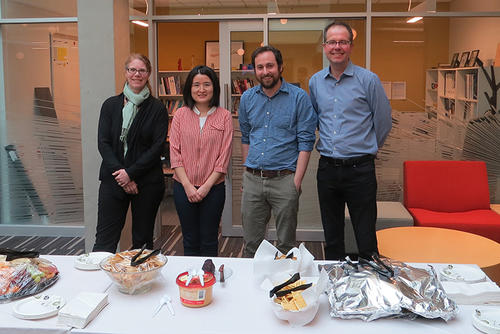
On February 26, 2020, Shilo Xia successfully defended her thesis: “Search for Neutrinoless Double Beta Decay and Detector Physics Measurements with the Final EXO-200 Dataset” (Advisor: David Moore).
Xia explained, “Neutrinos are one of the most fascinating fundamental particles comprising our world. Trillions of neutrinos pass through our bodies every second without our noticing them, as they rarely interact with each other or other particles. There remain a number of unanswered questions about these stealthy particles — Why are neutrinos lighter than charged particles? Are neutrinos their own anti-particles? My research investigates basic properties of neutrinos through searching for a hypothetical process called “neutrinoless double-beta decay” (0vbb). If this decay process exists, it would provide clues to the neutrino mass generation mechanism, and would be smoking gun for new physics. Through minimizing the level of radioactivity of materials used for constructing the detector, as well as maximally shielding radiation from external sources, our detector successfully placed a lower limit on the 0vbb half-life of Xe-136 — 3.5*10^25 years. The next generation experiment is currently underway, which will be sensitive to extremely rare 0vbb signals if they occur with a half-life of ~10^28 years.”
Xia will join Lawrence Berkeley National Laboratory as a Chamberlain fellow.
Thesis Abstract: Liquid xenon (LXe) is employed in a number of current and future detectors for rare event searches. This work presents the latest results from the EXO-200 experiment, which searched for neutrinoless double beta decay (0vbb) in Xe-136 between 2011 and 2018. With upgraded hardware, increased exposure and analysis improvements, the detector resolution, sensitivity and final data limit were also improved over time.

